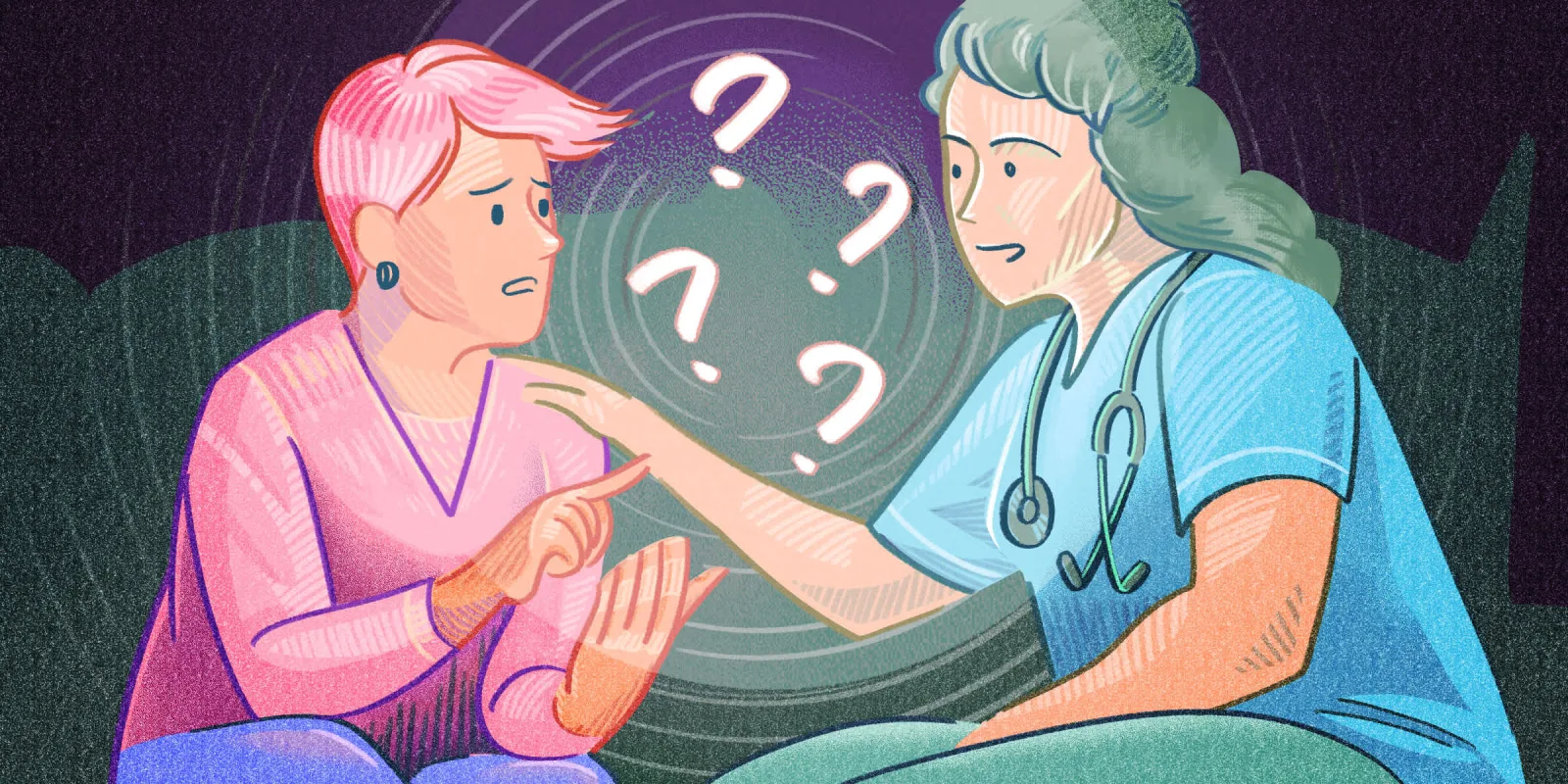The emotional bond I establish with my patients may be the most important tool in my toolkit. It goes without saying that my patients must have confidence in my medical competence and knowledge. But in order for them to feel comfortable communicating to me their deepest concerns, they must feel an emotional connection as well.
Recently a young woman, Marilyn, came to me with the unusual complaint, “The trouble is my qi.” It took me a while to figure out what she meant. But by the end of the visit, I realized it was an apt description. According to the National Cancer Institute, qi, in traditional Chinese medicine, is the “vital energy or life force that keeps a person’s spiritual, emotional, mental, and physical health in balance.” Indeed, Marilyn sensed correctly that something was not right with her qi.
After spending an hour with her, and reading the messages she later sent me, I could only conclude that she suffered from disordered thoughts, a defining characteristic of mental illness. In that sense, she was correct — her qi was in trouble.
Psychiatry is not my specialty, and so, just to be sure, I shared some of my patient’s written communication with a mental health professional, who confirmed my suspicion. “She needs medication,” he told me.
Unfortunately, Marilyn was not ready to accept that diagnosis. Although she volunteered that she had been hospitalized for psychiatric illness in the past, she was not open to that diagnosis now. She rejected outright my advice that she see a psychiatrist, responding with anger, even outrage.
Physical illness? By all means. She delighted in my suggestion of a nutrient deficiency and readily submitted to my extensive blood workup.
But see a "shrink"? No way. Given my lack of experience in this area, I did not feel comfortable prescribing the required medication, even if she had been willing to take it. What can a physician do when the kind of treatment her patient needs most, she is not willing to consider?
Yet, I do see an opening — although Marilyn rejected outright my suggestion that she see a psychiatrist, she has not severed our relationship. Rather, she has continued to share with me in exquisite detail all the myriad physical manifestations of her “qi problem.” In other words, she has connected with me. Because of our emotional bond, I feel confident I will be able to help her.
This strong connection is important with other patients as well. Alice, a middle-aged woman, needs medication that is given by injection once a week. After the first injection, she reported mild constipation (I suggested magnesium), but after her second dose, she experienced nausea, dizziness, and palpitations, severe enough that she considered calling an ambulance.
When we spoke on the phone, I realized that the magnesium may have contributed to her side effects, and I should have first recommended fluids and fiber. While her initial reaction was to give up on the much-needed medication, because we enjoy a good relationship, I was able to convince her, despite my mistake, to give it another chance.
How can doctors build this emotional bond with their patients? I think it starts with that first encounter, when you give the patients a chance to tell their story, not just the medical story but their life story. When you hear about their struggles — with work, with relationships, with all areas of life — you develop empathy, you create an emotional bond. This helps in myriad ways. You learn what you can expect from a patient and how quickly, when to make recommendations, and when to stand back and allow them space. Successful treatment is not so much about giving advice and prescribing medicine, it’s about building a relationship.
How do you connect with your patients? Share in the comments.
Marjorie Ordene, MD, is an integrative physician practicing in Brooklyn, NY. Her essays, short stories, and poetry have been published in various magazines and anthologies including The Sun, Tablet, Lilith, and Michigan Avenue Review.
Illustration by April Brust







